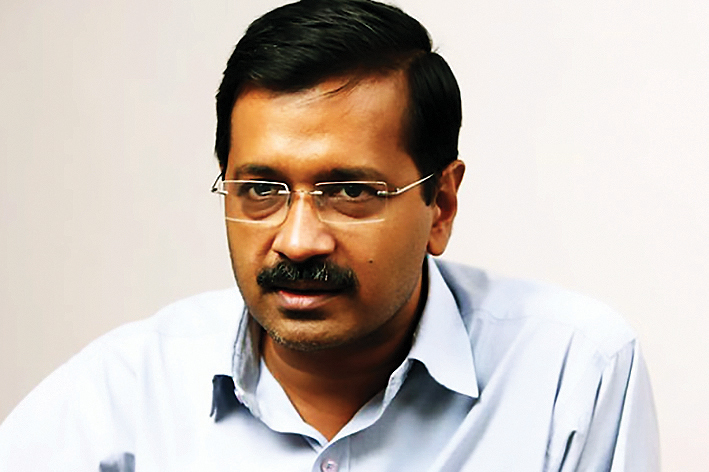
Arvind Kejriwal
In a continuation of the ongoing legal proceedings, a Delhi court has decided to extend Chief Minister Arvind Kejriwal’s judicial custody until May 20 in connection with the money laundering case linked to the liquor policy scam. This decision came from Special Judge Kaveri Baweja of Rouse Avenue Courts following the expiration of Kejriwal’s previous custody granted by the court.
Kejriwal was detained by the Enforcement Directorate (ED) on the evening of March 21. The Delhi High Court had earlier rejected Kejriwal’s plea contesting his arrest on April 10, noting that the ED had presented sufficient evidence, including statements from witnesses and the party’s own candidate, indicating that Kejriwal had received funds for the Goa elections.
Challenging the Delhi High Court’s ruling, Kejriwal has taken his case to the Supreme Court. Additionally, AAP leaders Manish Sisodia and Sanjay Singh are also implicated in the ED case. While Sisodia remains in custody, Singh was recently granted bail by the Supreme Court following concessions made by the ED.
The ED has levelled allegations against Arvind Kejriwal, asserting that he is the central figure in the Delhi excise scam and directly involved in utilising illicit funds totalling over Rs. 100 crores. According to the ED, the excise policy was implemented as part of a conspiracy to provide certain private companies with a 12 percent wholesale business profit, a provision not documented in the minutes of Group of Ministers (GoM) meetings. Furthermore, the agency alleges that there was a coordinated effort by Vijay Nair and others, in collaboration with the South Group, to afford wholesalers extraordinary profit margins. Nair purportedly acted on behalf of Chief Minister Arvind Kejriwal and Manish Sisodia, as per the agency’s claims.
In further developments, the Supreme Court, after careful consideration of arguments presented by both Arvind Kejriwal’s legal team and the Enforcement Directorate, has deferred its decision on the Delhi Chief Minister’s plea for interim bail. The court is scheduled to revisit the matter on Thursday.
There had been speculation that the Supreme Court might grant interim bail to Kejriwal, considering the ongoing Lok Sabha elections, given his current detention in connection with a money laundering case linked to the discontinued liquor excise policy.
During the hearing, the Supreme Court acknowledged that Kejriwal does not have a history of habitual offences, emphasising the importance of his plea for interim bail. Kejriwal is currently held in Delhi’s Tihar Jail on charges related to money laundering associated with the aforementioned excise policy.
Senior Supreme Court lawyer and Congress leader AM Singhvi, representing Kejriwal, argued that the ED lacked grounds to arrest the Chief Minister on March 21. Singhvi cited cases of other politicians like Narayan Rane, Chandrababu Naidu, and Shiv Shankar Das, who were granted bail under normal conditions with restrictions on public statements.
Justice Dipankar Datta noted that the discussion on interim bail wouldn’t have arisen if not for the ongoing elections. Justice Sanjiv Khanna expressed concerns about the potential repercussions if Kejriwal were released on interim bail, particularly regarding his official duties.
Solicitor General Mehta requested clarification from the court regarding the role of the Delhi Chief Minister before considering interim bail. Justice Khanna emphasised that the court could pass an interim order if a final decision couldn’t be made immediately.
Responding to Mehta’s arguments opposing interim bail, Justice Khanna clarified that elections presented a unique scenario and didn’t imply preferential treatment for politicians involved in crimes. Mehta suggested that Kejriwal’s arrest might have been avoided if he had cooperated, hinting at the consequences of his current stance on campaigning.
The Supreme Court’s forthcoming decision will be awaited eagerly, as it navigates the complexities of legal proceedings amidst the backdrop of electoral activities. (With inputs from PTI)
Delhi hosted what organisers describe as the world’s first player auction in golf, launching ‘72…
An elderly woman recalls how her six-year-old granddaughter lay bleeding after a speeding car hit…
Municipal Corporation of Delhi plans a unified policy enabling RWAs to adopt and maintain parks…
A 17-year-old boy allegedly died by suicide after jumping before a moving train at Uttam…
Delhi High Court grants bail to 26-year-old Thar driver accused of mowing down two in…
Two Rohini men arrested for fatally stabbing one person and injuring another during a robbery…